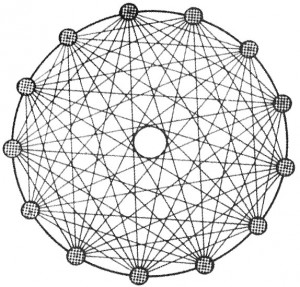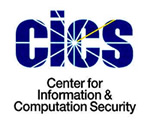
Research Centers
UCLA/USC Center for Biomedical Real-Time Health Evaluation for Pediatric Asthma (BREATHE)
Researchers from UCLA and USC have received a four-year, $6.1 million grant from the National Institutes for Health PRISMS Program to study and develop wireless sensing and analytical devices that can predict – and help mitigate or prevent – the onset of pediatric asthma attacks and other disorders. The UCLA/USC Center for Biomedical Real-Time Health Evaluation for Pediatric Asthma (BREATHE) will develop technology to reduce the incidence of medical emergencies and allow caregivers and people with chronic conditions to monitor health conditions in real time.
The principal investigator for BREATHE is Alex Bui, professor of radiological sciences at the UCLA David Geffen School of Medicine (joint appointment in UCLA’s Bioengineering Department). Research will be led by Professor Bui and Co-Directors Majid Sarrafzadeh, distinguished professor of computer science at UCLA’s Henry Samueli School of Engineering and Applied Science, and Dr. Frank Gilliland, professor of preventive medicine at USC’s Keck School of Medicine.
BREATHE researchers seek to create end-to-end software infrastructure for pediatric sensor-based health monitoring. The BREATHE platform will securely collect an array of physiological and environmental data from sensors, ranging from heart rate to air quality. It will analyze the data in real time, integrating it with the patient’s medical history and other contextual factors, and then convey vital information to patients or caregivers via smartphones or other devices. The BREATHE platform will help us answer an array of questions about the potential environmental causes or influences on pediatric illnesses.

The UCLA Connection Lab
The UCLA Connection Lab provides an environment to support advanced research in technologies at the forefront of all things regarding networking and connectivity, and will deliver the benefits from that research to society globally. The Lab’s broad-based agenda enables faculty, students and visitors to pursue research challenges of their own choosing, without externally imposed constraints on scope or risk. It draws inspiration from UCLA’s foundational role as the birthplace of the Internet. With its open inclusive structure, the UCLA Connection Lab will help to realize the vision of creating high leverage technologies, as was accomplished years ago with the Internet.
Center for Encrypted Functionalities
The Center for Encrypted Functionalitie was established in 2014 by an NSF Secure and Trustworthy Cyberspace (SaTC) Frontier Award, under the directorship of Amit Sahai. The Center for Encrypted Functionalities tackles the deep and far-reaching problem of general-purpose software obfuscation. The goal of obfuscation is to enable software that can keep secrets: software that makes use of secrets, but such that these secrets remain hidden even if an adversary can examine the software code in its entirety and analyze its behavior as it runs.
The Center, headquartered at UCLA, is a collaborative effort with Columbia University, Stanford University, Johns Hopkins University and the University of Texas-Austin.
Center for Domain-Specific Computing (CDSC)
The Center for Domain-Specific Computing (CDSC) was established in 2009 with the support of a $10 million grant from NSF’s Expeditions in Computing program. The award focuses on the development of high-performance, energy-efficient, customizable computing that can revolutionize the way computers are used in health care and other important applications. Domain-specific computing uses customizable architectures and high-level computer languages tailored to particular application domains.
The Center, under the directorship of Professor Jason Cong, is a collaborative effort between UCLA’s computer science, electrical engineering, mathematics, and radiological sciences departments, as well as the computer science and engineering departments of Rice University, UC Santa Barbara, and Ohio State University.

Scalable Analytics Institute (ScAi)
The Scalable Analytics Institute was established in the fall of 2013 under the direction of Professor Carlo Zaniolo. The focus of the Institute is on the continuing growth of data and the demand for smart analytics to mine that data. Such analytics are creating major transformative opportunities in science and industry. To fully capitalize on these opportunities, computing technology must solve the three-pronged challenge created by 1) the exploding size of “big data,” 2) the growing complexity of big data, and 3) the increased sophistication of analytics that can be used to extract patterns and trends from the data.
Center for Autonomous Intelligent Networked Systems (CAINS)
The Center for Autonomous Intelligent Networked Systems was established in 2001, under the leadership of Professor Mario Gerla, with six laboratories in the Computer Science and Electrical Engineering departments of the UCLA’s Henry Samueli School of Engineering and Appplied Science.
The Center’s mission is to serve as a forum for intelligent agent researchers and visionaries from academia, industry, and government, with an interdisciplinary focus on such fields as engineering, medicine, biology and the social sciences. Information and technology will be exchanged through symposia, seminars, short courses, and through collaboration in joint research projects sponsored by government and industry.
Center for Information & Computation Security (CICS)
The Center for Information & Computation Security was founded in the fall of 2003 under the directorship of Professor Rafail Ostrovsky. In 2004 Professor Amit Sahai joined the leadership team to serve as associate director. Headquartered within the Computer Science Department, the Center’s mission is to promote all aspects of research and education in cryptography and computer security. The Center explores novel techniques for securing both national and private-sector information infrastructures across various network-based and wireless platforms, as well as wide-area networks. The inherent challenge in this work is to provide guarantees of privacy and survivability under malicious and coordinated attacks.

The David Geffen School of Medicine at UCLAand the UCLA Henry Samueli School of Engineering and Applied Science have formed a new center whose mission is to improve the quality and reliability of new health care technologies, reduce the length and cost of hospital stays, and allow more patients to heal in their own homes.
The UCLA Center for Systematic, Measurable, Actionable, Resilient and Technology-driven Health, or Center for SMART Health, will foster collaboration among engineers, computer scientists, clinicians, biomedical researchers and information technologists. Researchers will develop and test health care devices and systems — including mobile technology, big data analytics, screening technologies and medical robotics — in order to address challenges in the way health care is delivered.
The center’s co-directors are Dr. Arash Naeim, an associate professor of medicine and the Geffen School’s chief medical officer for clinical research, and Majid Sarrafzadeh, a distinguished professor of computer science and electrical engineering.




